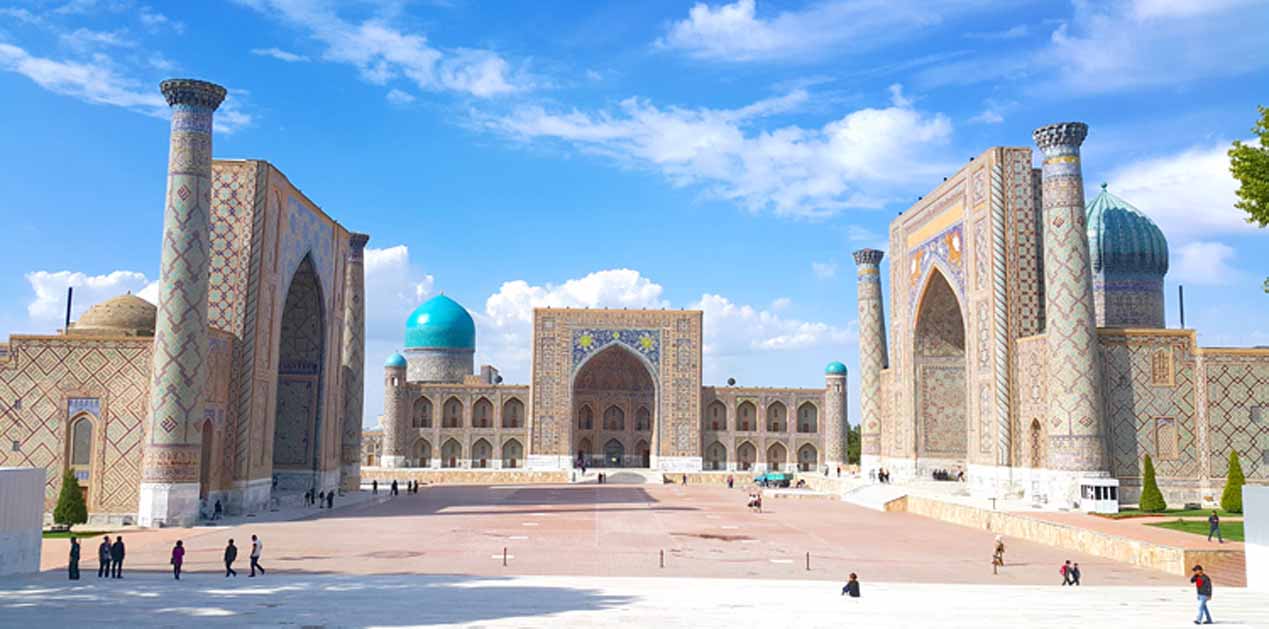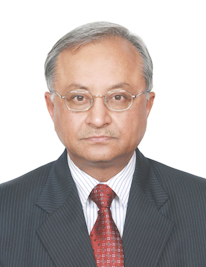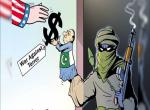Since attaining independence in 1991, Uzbekistan and other Central Asian Republics have been struggling to prevent the radicalization of their overwhelmingly Muslim populations. Uzbekistan quickly realized the danger of unregulated religious preaching and, after an initial period of un-checked fundamentalist sermons, re-imposed control over the mosques and madrasas in the mid-1990’s.
Uzbekistan, despite firm measures, had a rude awakening in 1999, when there were a number of bomb explosions in Tashkent in an un-successful attempt to assassinate President Islam Karimov. Since then Uzbek government has taken stern steps to arrest and sentence radical operatives and curb all avenues for pernicious propaganda through mosques or social organizations. The Uzbekistan government keeps a close watch on all religious activities. In May 2005, unrest engineered by Islamic militants in Andijon city was ruthlessly crushed leading to hundreds of casualties. By adopting these harsh measures the Uzbek Government was able to protect the country from descending into conflict and chaos.
The Amu Darya separates Uzbekistan and Afghanistan and on the two banks of the river are two different worlds - a secular ,modern and progressive Republic of Uzbekistan on one side, and war-torn Afghanistan still struggling to come out of the medieval ages on the other side. Hounded by the Uzbek security establishment, thousands of Uzbeks fled the country in 1998 and founded the Islamic Movement of Uzbekistan (IMU) in Northern Afghanistan. The IMU’s avowed objective was to overthrow the secular regime of the then President Islam Karimov and establish an Islamic caliphate in Uzbekistan. IMU fighters are better educated and trained with a background in Soviet military. These militants had initially organized themselves in Afghanistan under the protective cover of Taliban. After Taliban regime was crushed by US Army in 2001, IMU fighters moved into Pakistan’s North-Western tribal areas where they allied with Pakistan Taliban and also often married local girls with family and tribal permission.
For more than a decade these ferocious fighters wreaked havoc across North-Western Pakistan before being pushed out. In June 2014, following the operation ‘Zarb-e-Azb’ by Pakistan, Central Asian militants, including Uzbeks, reportedly moved to Helmand province in Afghanistan. These militants allied themselves with Taliban or Islamic State of Khorasan Province depending on which group held sway and offered shelter and protection to their families. It is estimated that between five to seven thousand Uzbek fighters owing allegiance to the IMU are operating in eight Afghan provinces neighbouring Pakistan. IMU is wary of any future peace agreement between the Taliban and the Afghan Government and is attempting to establish a secure base for itself in Northern Afghanistan. Their objective is to gradually create sanctuaries and hiding places in Uzbekistan, Tajikistan and Kyrgyzstan.
Analysts believe that IMU retains credibility and following in Uzbekistan despite regularly losing top leaders and its retreat from Pakistan. IMU is assiduously trying to radicalize the Uzbek, Tajik and Turkmen communities in Northern Afghanistan. Analysts further believe that IMU has emerged as an umbrella organization for Jundallah, Junad al-Khalifa, Jamat Ansarullah and the Islamic Jihad Union which have the common objective of destabilizing secular Central Asian governments and eventually create Islamic regimes. This is a source of acute concern to the capitals of all Central Asian Republics, particularly Tashkent and Dushanbe. IMU and its affiliated groups also play a vital role in transit of drugs from Afghanistan to Europe via Central Asia and partner Afghan Taliban in this multi-billion dollar illicit economy.
To keep Uzbekistan on the path of secularism, progress and development is a major challenge faced by the new Uzbek President Shavkat Mirziyoev. His election in December 2016 in a fair multi-candidate contest with 88 percent vote symbolised the strength and maturity of the Uzbek Republic. After the 26 year long rule of President Karimov, the political succession was smooth and as per the constitutional provisions. In eight months since taking charge, President Mirziyoev has brought in his own collegial style of governance into play. He has taken concrete steps to improve relations with all the neighbours, particularly with Tajikistan, and sincere steps are being taken to deal amicably with un-resolved issues like water sharing and transit routes.
President Mirziyoev is paying special attention to check the radicalization of the Uzbek people particularly the youth. In a significant speech on “Ensuring Social Stability, Safeguarding Purity of our Sacred Religion is an Imperative of Time” on 15 June 2017 at a conference in Tashkent, he laid out the roadmap for future state policy on this important subject. Significantly, 2017 has already been declared as “The Year of Dialogue and Human Interests.” In the speech, President Mirziyoev recalled the “traditions of tolerance and magnanimity” of the Uzbek people and affirmed that the Uzbek Constitution and laws “provide for equal rights and freedoms for all our citizens irrespective of their language, nationality and religion.” President Mirziyoev also pointed out the efforts since independence to ensure freedom of conscience and noted that the number of mosques has gone upto 2042 from 80 in the Soviet era. President Mirziyoev referred to his participation at the international summit of Arab and Muslim countries in Saudi Arabia and the United States in May and declared that “our goal is a coalition of nations who share the aim of stamping out extremism.” He said that the “entire humanity is deeply worried about international terrorism, extremism, drug trafficking and religious confrontation” and candidly observed that “the fact that the people of our nationality (Uzbek) are also among those who carried out recent terrorist attacks in various countries raise distress and disappointment among our nation.”
President Mirziyoev rightly asserted that “protection of youth from the influence of various religious extremist groups stands as a major task for all of us.” After identifying the problem, the President analysed the causes and possible preventive action by the State, society and religious preachers and outlined the following course of action:-
i) A comprehensive analysis of the reasons for radicalization and preventive works before the youth join a radical religious organization.
ii) To disseminate a counter-narrative by training imams, ‘Mohalla’ Committees and specialists to “explain the fallacy of these (radical) ideas, their contradictions to our religion and integrity, as well as the interests of our State.”
iii) Local officials and NGOs to guide and assist families of those citizens who “followed false promises and harebrained ideas”
iv) Increase the responsibility of imams and mullahs to ensure that they give the right message that “Islam…. categorically opposes any violence, destruction and bloodshed of innocent people.”
v) The importance of upbringing and education and the duty of family and neighbours to be watchful and get involved to identify and check early signs of radicalization in any individual.
vi) President Mirziyoev sought the co-operation of mullahs and imams in “preventing grave dangers approaching (Uzbek) borders and fighting them with enlightenment.”
The contents, thoughts and prescriptions in this important speech are worth studying by the authorities of all the countries which have a significant Muslim population. While complete freedom to practice the religion is guaranteed, it is the duty of the state and society to be watchful that religious establishments and preachers do not become the propagators of divisive ideology, violence and destruction. President Shavkat Mirziyoev deserves to be complimented for his significant contribution in addressing the major challenge of radicalization facing humanity at these troubled times.
As there are now frequent reports of young Muslim youth from Kerala joining the Islamic State, India’s authorities need to ensure that no religious establishment in India is able to spread the ideology of hate, violence and jihad.
(The author is a former Ambassador to Uzbekistan and Republic of Korea, and a Visiting Professor in Delhi University)
Image Source: http://www.advantour.com/uzbekistan/samarkand.htm











Post new comment